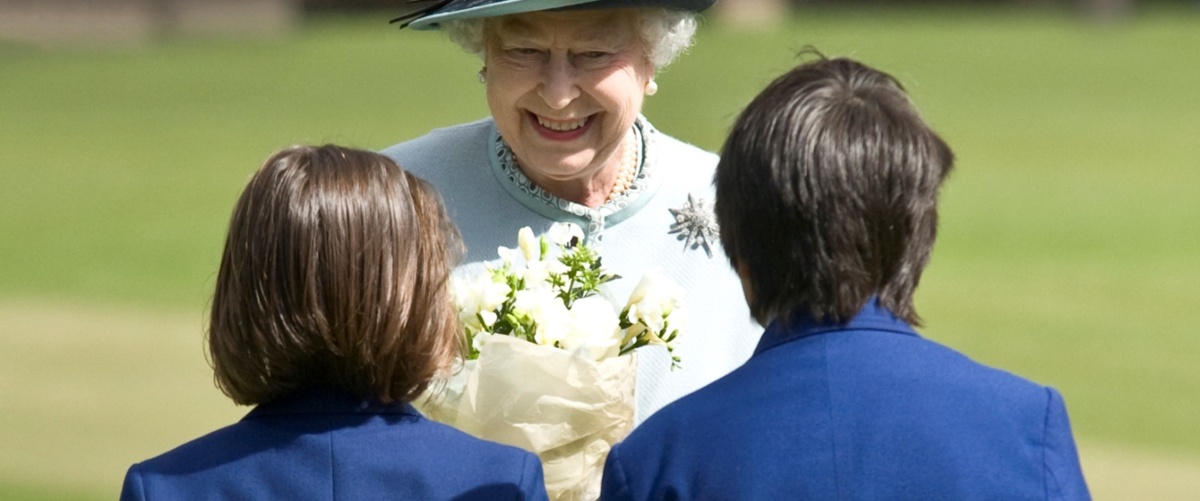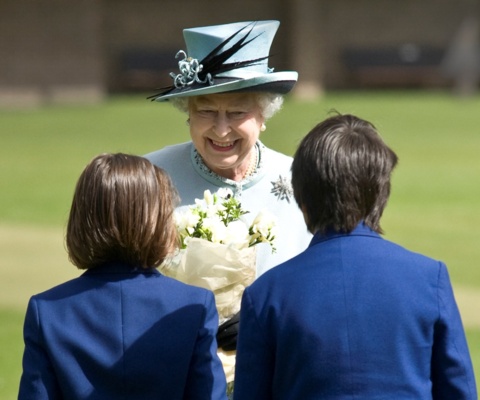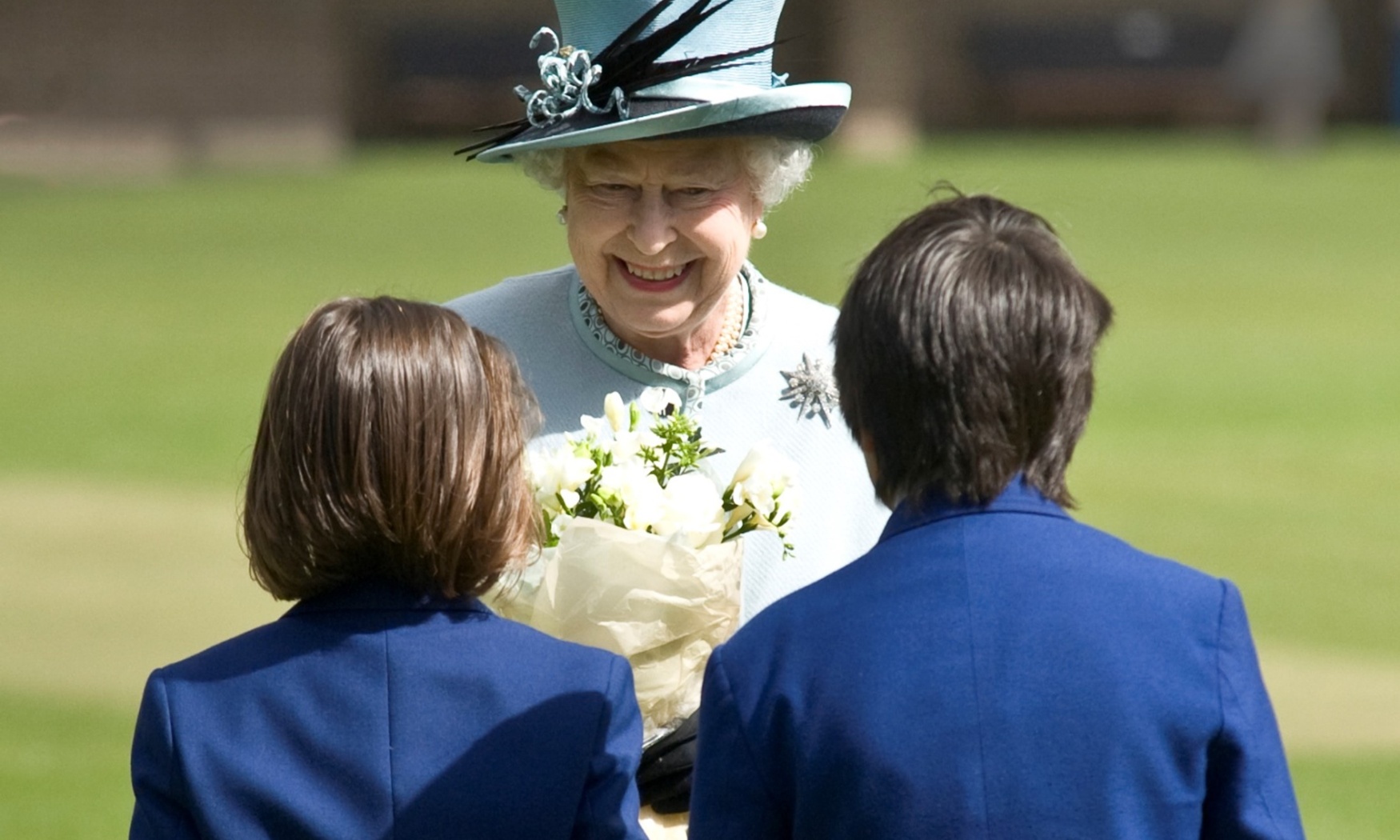As the nation continues to mourn the death of Her Majesty Queen Elizabeth II, assembly in the Cathedral this morning saw the Head reflect on her lifetime of service and dedication.
Why should I have felt at times unsettled, sad, nostalgic and grateful this week? I did not know the Late Queen personally and never met her. We perhaps should not be surprised that a woman of 96 whose health was increasingly frail should eventually pass away. Yet, King Charles said, “It was the day I have been dreading,” and, judging by the 5 mile queues and waits of nearly 10 hours in London to see his mother lying in-state, there are lots of other people who reacted in a similar way when the passing of Queen Elizabeth II was announced last Thursday.
Some of this is about symbolism: who and what the Queen represented. Because the United Kingdom is a monarchy, she has been the Head of State and a distinguished part of a centuries-old tradition, a point emphasised by the formal Proclamations last weekend in London and around the countries of the Union. Her death therefore feels like a loss of collective and representative identity, requiring an unwanted period of transition, which is particularly unsettling at a time when so much else is changing radically and, in places, worryingly.
Such feelings are exacerbated by the longevity of Queen Elizabeth’s reign. I have spent time this week trying to gauge how you have been feeling as a pupil-body. I think your generation has grasped the significance of this moment but you would be forgiven for not feeling it as intensely as people of my age: she has been the Queen for all of your lives, but I think the weight of feeling is that this is also true for the entire working population of the country. Saying it when you are 15 is one thing; saying it when you are 40, 50, 60 or 70 is quite another. I woke up in the middle of night over the weekend with the very clear practical concern, “But what are they going to do about all the coins and notes?” Add to that stamps, post-boxes and other staples of our daily lives.
Yet it is not just public symbolism that has brought such an outpouring of grief and warmth in recent days. There has been a great deal of admiration for the Late Queen’s personal qualities; as one mourner outside St Giles’ Cathedral in Edinburgh put it, “She was everyone’s Granny, the nation’s Granny”.
She committed herself to service for her country over the period of 70 years on the throne. Though there were times when the wider Royal Family experienced challenges and met with different public reactions, we were increasingly impressed by the constancy of her personal commitment over such an extended period, establishing a platform for her to provide reassurance and solace at difficult moments for our country and encapsulate joy at moments of celebration. Her grandson, William, captured this feeling for younger people when he said, “I thank her on behalf of my generation for providing an example of service and dignity in public life that was from a different age, but always relevant to us all”. You have heard me talk at school about leadership and service as separate but related concepts; Queen Elizabeth was the epitome of the servant-leader, something perhaps best encapsulated in her own words: “When life seems hard, the courageous do not lie down and accept defeat; instead, they are all the more determined to struggle for a better future.”
Yet her service worked because she brought such vividness to it. Politicians have talked about her experience and wisdom through decades of conscientiously reading daily red box briefings, while many commentators have spoken of her shining eyes, her ability to put others at ease, her sensitivity to situations. I am not surprised because in some ways the Royal Family have to be expert people-watchers, but I certainly loved the story that Mrs Fairweather put in the tutor slides last week about how she brought comfort to the distressed Aleppo medic by getting him to help her feed biscuits to her corgis.
My favourite reflections have been about her humour and lack of pomposity: there are the famous sketches with Paddington for the Platinum Jubilee and with James Bond at the 2012 Olympics. Yet there are the witty one-liners, such as:
- Coming to a horse yard, an environment in which she obviously felt so comfortable, and saying “Nice to come to a place that doesn’t smell of fresh paint.”
- Or coming across some American tourists while walking with a protection officer near her home at Balmoral. Not recognising the wrapped-up figure, the tourists asked if she had ever met the Queen. Pointing at the man beside her, she replied, "No, but he has."
- Or a shop assistant in Norfolk telling her: "You look just like the Queen." To which she is said to have replied: "How reassuring."
At this time, it is interesting to observe this human need to observe rituals and traditions, to gather and share. I have already mentioned the queues in London, but last night in here there were 2000 people packing out all parts of the building for a Thanksgiving Service for Queen Elizabeth. The tone is a mixture of grief and gratitude, the latter based around the phrase used by King Charles and repeated by many others: a life well-lived.
It brings to mind a story from the Greek writer Herodotus and I shall finish by summarising it. Solon, a famously wise man, was summoned by the fabulously wealthy King of Lydia, Croesus (you may have heard the phrase “as rich as Croesus”; well, this is him). The King thought he must be the happiest man alive because of his wealth and wanted this endorsed by the sage Solon. To his frustration, Solon cited other unknown people who died honourably. Croesus eventually asked about his own status and Solon replied that it was not possible to judge Croesus until the end of his life, the famous message emerging from the story that nobody can be called happy until their final day. It feels that our collective grief and gratitude stems from the fact that Her Late Majesty has now reached the point when one can reflect on the totality of her life. In doing so, there can be no doubt that her life has indeed been well-lived.
As the nation builds towards the State Funeral on Monday, I remind you of the three ideas offered by the Chaplain this time last week: mourning, celebration and joining in. I encourage you to bear each in mind as you process your own emotions at an extraordinary point of history. As Simon Armitage, the Poet Laureate, wrote in his official response to the Queen’s passing:
The country loaded its whole self into your slender hands,
Hands that can rest, now, relieved of a century's weight.



